One of the first hurdles people face when moving to Japan is signing a property rental agreement. Japanese rental agreements can be full of complex, detailed rules. This article will explain ten of the basic things you need to know when renting in Japan, from tips on how to find the perfect place to the strict rules you need to follow when moving out. Use this article to find helpful hints on how to make your move to Japan a smooth, successful transition.
1. Should I Use a Portal Site or a Real Estate Agent? How to Find a Property

First, you need to find somewhere to live. When looking for a rental property in Japan, you have the choice between using a property search portal such as Japan Property, one of the leading property portal websites in Japan to buy or rent properties, or visiting a real estate agent. Let’s look at both in more detail.
Property Search Portals
The two main property search portal sites in Japan are SUUMO and HOME’S. Both offer a wealth of information on available properties, but are currently only available in Japanese. For this reason, we recommend non-Japanese speakers make use of portal sites available in multiple languages such as BEST-ESTATE.JP. They feature many properties specifically offered for foreigners and explain the stages involved—from finding a property to signing an agreement—in a range of languages including English, Traditional Chinese, Simplified Chinese, and Korean, so they’re definitely worth checking out.
Once you’ve chosen a website, you need to specify your search terms. These can include criteria such as being close to a station, affordable rent, minimal upfront fees, good natural light, and immediate availability. Taking your budget into account, carefully consider what kind of place you would like to live in. Portal sites usually have many properties that are available immediately, so if you need somewhere right away, be sure to use this as a search term.
So, the above are the basics, but there are tricks you can use to get the best results from your search. For example, regardless of whether you live in the city center or the suburbs, you will find more spacious properties at lower prices if you look at options that aren’t as close to train stations. This is simply because it is harder to find tenants for properties that don’t have convenient transport links, so the rent tends to be lower.
If you aren’t too concerned about being a little further from public transport, you can find some stunning and spacious newly-built or renovated properties to choose from. So, if you want to live somewhere beautiful but keep the rent low, search for properties that are further away from the station.
Real Estate Agents
If you want someone to introduce you to a range of properties in a particular area, you should consult with an estate agent. Compared with the ease of using portal sites, it may seem a hassle to visit a property, and you may even feel anxious about having to speak directly to an agent, but there are actually many advantages to choosing this method.
One advantage is that they can introduce you to so-called “hidden treasures” not listed on portal sites. This is because real estate agents use a property information network system known as REINS which contains information on properties not commonly available to the general public. This gives you a much higher chance of finding something that ticks all of your boxes than just searching online would. It’s particularly useful if you’re new to house-hunting in Japan and would prefer the peace of mind that comes from consulting with an expert.
Recently, there has been a rise in multilingual estate agents that employ staff who speak multiple languages. There are even a handful of real estate traders who even specialize in finding accommodation for foreign renters. Listed below are the country-wide Top 3 Estate Agents for Foreigners (2017) as published by Real Estate Japan. Consider reaching out to one of them!
- Aonissin Co.,ltd. (Shinjuku, Tokyo)
- Rise Property (Nagoya, Aichi Prefecture)
- Ichii Corporation (Shinagawa, Tokyo)
2. “Mansion” Means Something Completely Different Here! The Types of Accommodation Available in Japan
Next, we’ll look at the differences between three major categories of rental properties: apartments, mansions, and share houses.
- Apartment: Apartments in complexes typically made with wood or light-gauge steel frame construction
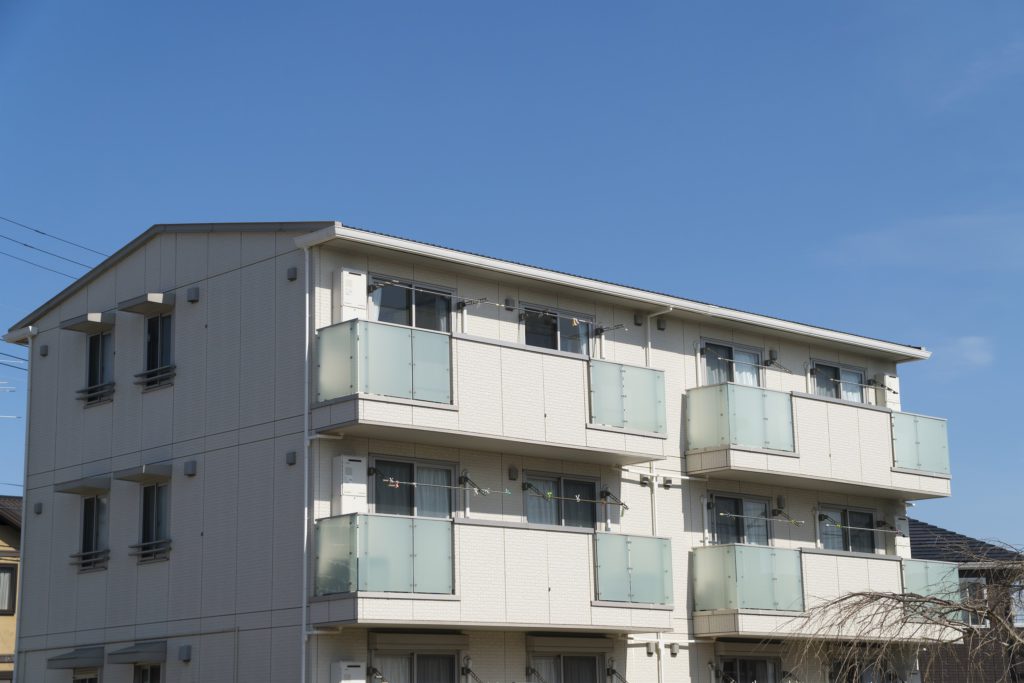
- Mansions: Apartments in complexes typically made with steel frame or reinforced concrete construction
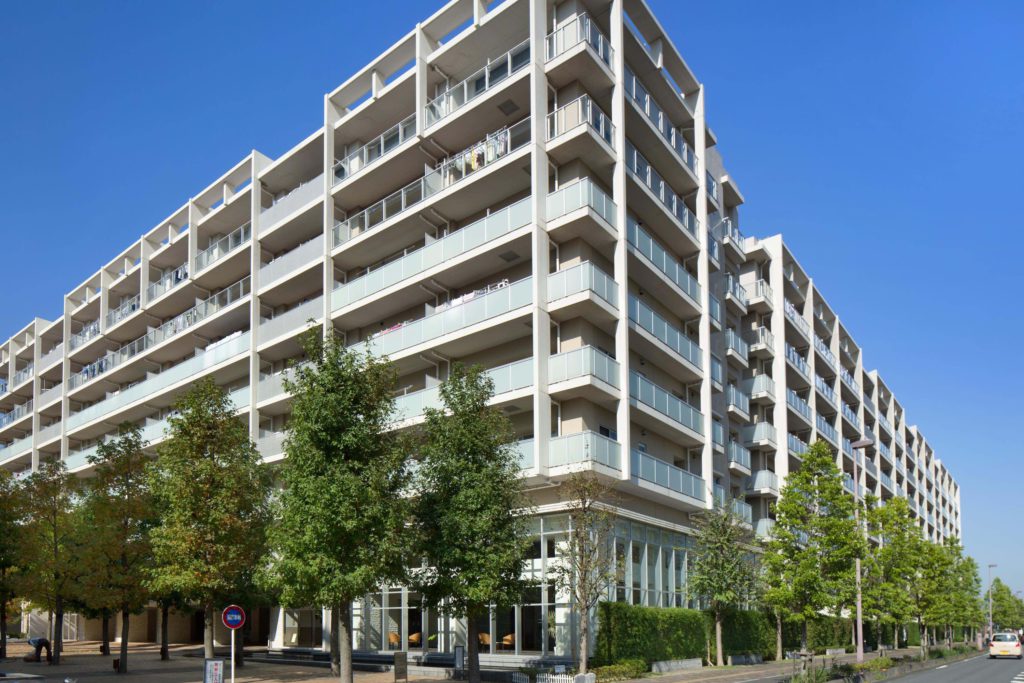
- Share house: Renting a private room in a property with shared common spaces
The difference between an apartment and a mansion is in the structure. In general, apartments are properties made from wood and lightweight steel, while mansions are made from materials such as steel or reinforced concrete. A Japanese mansion isn’t a large, stately home as the English word suggests, but a very common apartment, so don’t get too excited if the real estate agent offers to show you around a mansion!
Share houses are a popular option for people coming to Japan for shorter periods of time. Everyone has their own room, but the kitchen, toilet, and bathroom are usually shared. They tend to be cheaper than apartments and mansions, and have the added advantage of being able to mix with new people.
Additional rental options may include fully-furnished apartments with home appliances, loft apartments, and monthly rental mansions. Furnished apartments are a good choice for people who want to cut down on initial expenses or for those who don’t have time to buy furniture when they arrive in Japan.
3. What Do LDK and DK Mean? Property Layout and Facilities
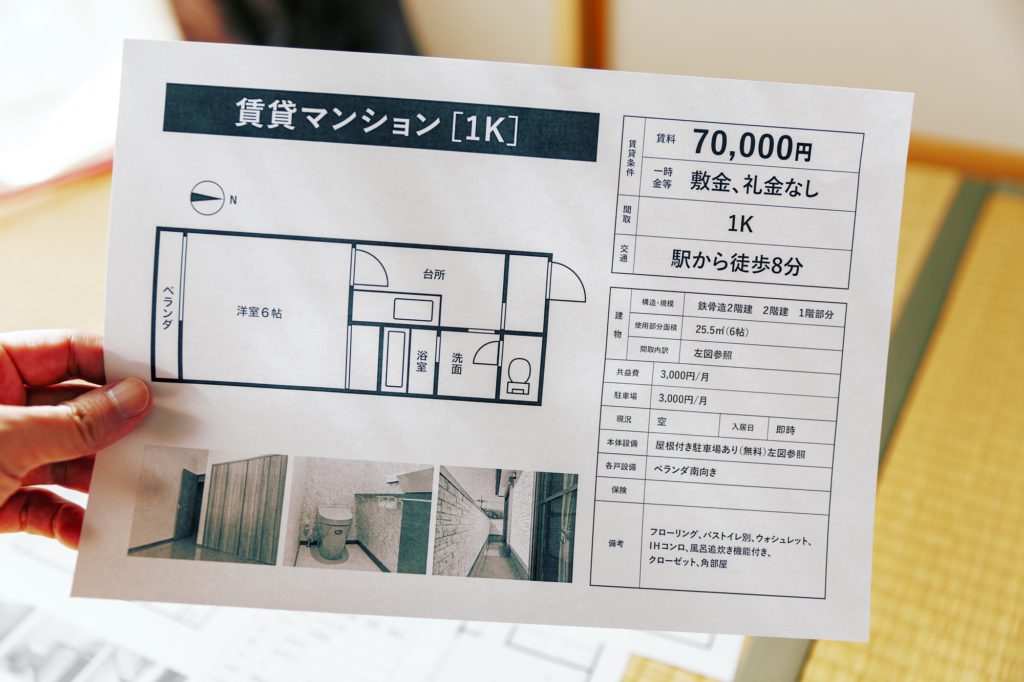
When you start looking for rental accommodation, you will probably come across expressions like “LDK” and “DK”. These terms describe the type of rooms a property has. “L” stands for living room, “D” for dining area, and “K” for kitchen. In other words, “LDK” would indicate a property with a living, dining, and kitchen area.
You might also want to look into whether or not the toilet, wash basin, and bath come together in one room as a so-called prefabricated “unit bath”. In urban areas, properties close to train stations, or cheaper properties, this is usually the case. Since such properties can have limited floor space, a unit-bath is the most practical option.
When looking for a property, you should check what floor the apartment is on. Generally speaking, any room on the second floor or above is more secure and less likely to be targeted by thieves. When considering security, it is particularly good advice for women to take an apartment on the second floor or higher. This is something worth asking the real estate agent about when viewing the property.
4. Prices Can Double From Area to Area? Market Prices in Tokyo by Area
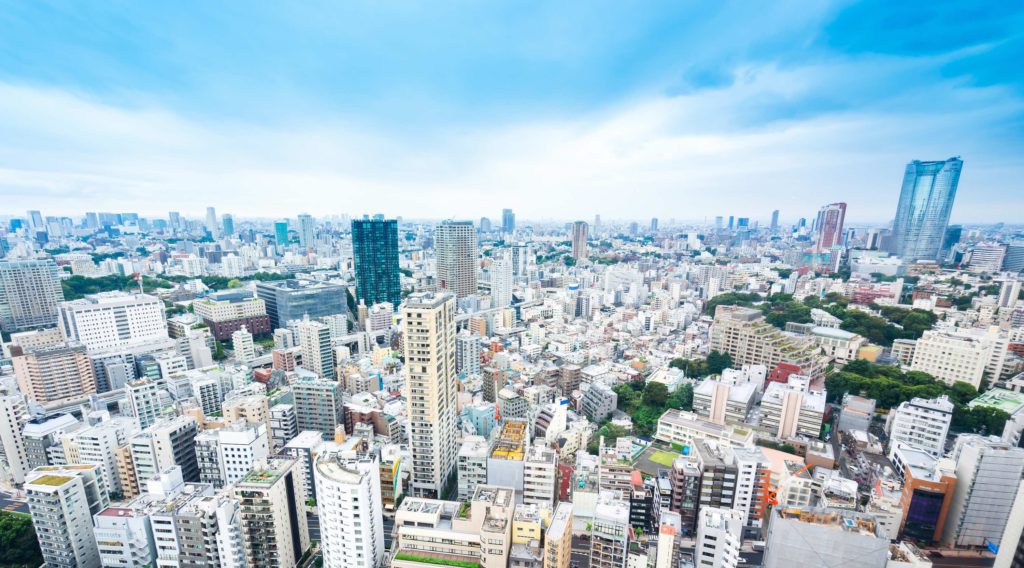
Here are the market prices for rental accommodation in various areas of Japan’s capital, Tokyo. Below are figures from June 2020 for a bedsit, 1K, or 1DK apartment. For more details on rental prices, you can compare properties using the search portals we mentioned above.
Central Tokyo Area Examples
・Chiyoda: 125,100 yen
・Chuo: 117,400 yen
・Minato: 133,000 yen
・Shinjuku: 103,000 yen
・Sumida: 97,300 yen
・Koto: 100,500 yen
・Shinagawa: 101,700 yen
・Taito: 101,900 yen
・Meguro: 106,700 yen
・Shibuya: 121,300 yen
・Setagaya: 87,400 yen
Examples of Areas Further from the Tokyo Center
・Kita: 82,000 yen
・Arakawa: 78,900 yen
・Katsushika: 67,400 yen
・Edogawa: 68,700 yen
・Itabashi: 76,500 yen
・Nerima: 72,800 yen
・Toshima: 91,300 yen
・Adachi: 69,100 yen
* Prices correct as of June 15, 2020
Reference: Market Prices for Rental Properties in Tokyo’s 23 Wards (HOME’S)
As you can see, the highest prices are in Minato, the lowest in Katsushika. Although they are all in Tokyo, the price difference between the cheapest and most expensive areas is almost double. Of course, even within one area, there can be a significant difference in prices depending on the condition and location of the property. You may also find many properties for below market price because of their age or their distance from a train station.
5. Start Looking Between April and August! The Best and Worst Times to House-Hunt in Japan

When you are looking for property in Japan, it’s best to try and avoid moving season, which falls from January to March each year. With people all over the country preparing to move for new jobs or the start of the school year, real estate agents and moving companies tend to be under a lot of pressure in these months. It’s a difficult time to book a viewing, and moving costs are particularly high, so this is a good time to avoid when you are thinking about moving.
If you can, it’s best to wait until this peak is over and start looking between April and August. If you want to find the perfect property at your own pace, this is the time to aim for. Depending on the property, it will be easier to negotiate prices or delay your moving in date. It’s the ideal time to house-hunt, as owners are waiting around in the hope of finding tenants.
6. Water, Gas, Electricity, and Internet: Setting up Your Utilities
When you have confirmed your moving-in date, you need to set up your utilities. The three primary services are water, electricity, and gas, and you may also need to set up an internet connection. You can apply for these online or by phone. You will need to contact your local Bureau of Waterworks for your water, and contact a gas and electricity company to have those utilities set up. It’s possible to get a special price on a set plan if you get your gas and electricity from the same company, so it’s worth making use of this if possible. It is also worth asking your real estate agent or landlord, as they may have a designated supplier.
In some cases, an internet line may already be set up in your mansion building, in which case, it should just take a simple procedure to get you connected. Ask your agent for more information.
7. What to Do Once You Have Moved In! Complete Your Residence Application and Moving in Notice

This only applies to people who have just arrived in Japan, but once you have moved into your new property, you need to go to your local government office (the ward or city office) to complete all the necessary government procedures. This is because foreigners are subject to the same Basic Resident Registration Law as Japanese citizens. You have 14 days to apply after moving into your residence. Take your residence card or alien registration certificate to do your moving-in paperwork at your local government office.
8. The Big Mystery of Renting in Japan: Will I Ever Get to Meet My Landlord?
In rental properties in Japan, you don’t often get the chance to speak to your building’s landlord or manager. In most cases, a management company will look after the property on behalf of the landlord. It will make sense when you actually live in Japan, but in many cases, you will move out without ever having met your landlord.
If you are unlucky enough to encounter problems, it’s most common to contact the real estate agent or management company. In cases where you have their contact details, it’s not uncommon to contact the landlord or building manager too.
9. Can I Change My Mind? How Breaking Your Lease Works After Signing
Normally, once a contract has been signed, you cannot back out of it. If you change your mind after you have been given the right to enter the house, it will be treated as breaking your lease. Your finder’s fee and deposit will not be returned, but if you have never entered the house, you may get your security money back.
This is primarily because canceling after signing a contract causes a lot of problems for the landlord and real estate agent. In unavoidable circumstances, such as an emergency that means you have to return home, explain the situation as thoroughly as possible, and apologize. If the other party is understanding, you may get back some initial costs.
10. The Strictest Country in the World When It Comes to Leaving! You Need to Leave Your Apartment as You Found It
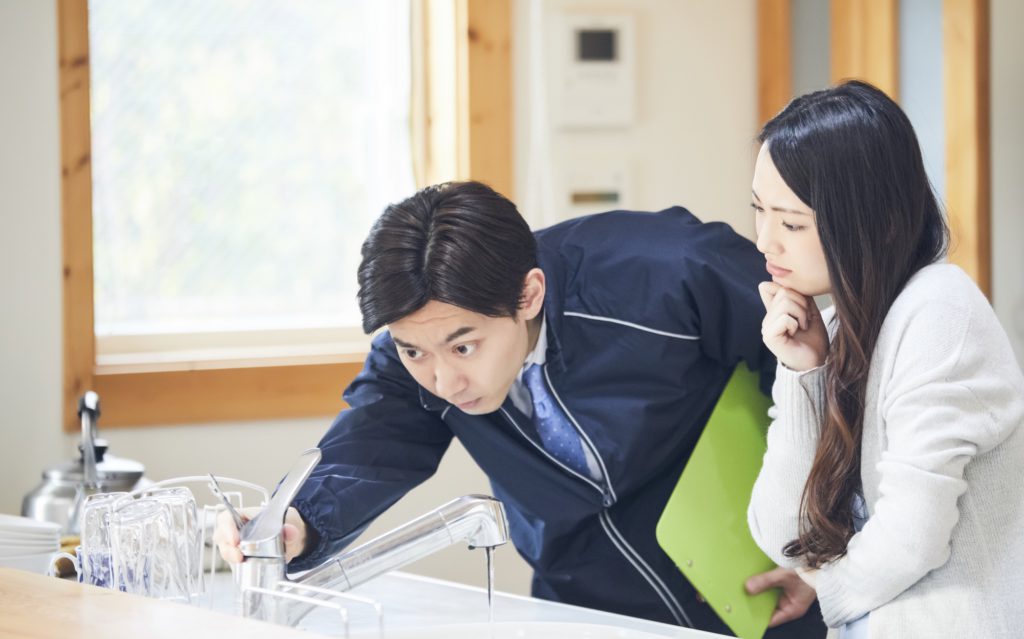
When you leave a rented property in Japan, there are strict rules about leaving it in the condition that you found it. For example, if there is just one slight tear or stain on the wallpaper, it’s common to have it all replaced. This cost of repair and maintenance often becomes an issue between the landlord and tenant. It might seem excessively strict compared to how things are judged back home, and you may question whether the room really needs completely new wallpaper because of one little tear. It is important to confirm from the outset what level of damage you are responsible for. Please look at the following examples.
- Condensation from the window has caused a stain on the floor → You must restore this to its original condition
- There is a scratch on the floor from the castors on an item of furniture → You must restore this to its original condition
- There is a nicotine stain on the wall from tobacco smoke → You must restore this to its original condition
- Oil in the fan has caused it to stop working → You must restore this to its original condition
With any damage that could have been cleaned or dealt with, rules state that where damage has occurred from neglect, you are responsible for repairing it. For example, as condensation is naturally occurring, it is not an issue at the time it occurs, but if this has been left for a long time and as a result has caused damage to the floor or walls, it becomes the tenant’s responsibility to restore them to their original state. This is because it is generally accepted that the tenant should have been cleaning and taking measures to deal with condensation and prevent damage as it occurred.
Things to Check When You Plan to Leave
There are many countries where your accommodation lease will automatically come to an end, but In Japan, if you do not formally ask to leave at the end of your contract period, it will automatically continue. Because of this, you need to be fully aware of the procedures for leaving your property as outlined in your lease agreement. As you may also need a copy of your status of residence certificate, be sure to present this when asked. However, it is illegal for your landlord to ask for your passport. Make sure you do not give it to them, even if it is just a copy.
Conclusion
So, now you have an idea of the details involved in renting a property in Japan! We hope you can use this article to find out what you need to know before your move to Japan so you can avoid any problems when you get here.
The Ministry of Land, Infrastructure, Transport and Tourism have produced an Apartment Search Guidebook aimed at foreigners living in Japan. It’s available in several languages, so please consult this for more information when planning your move.
If you want to give feedback on any of our articles, you have an idea that you’d really like to see come to life, or you just have a question on Japan, hit us up on our Facebook!
The information in this article is accurate at the time of publication.

